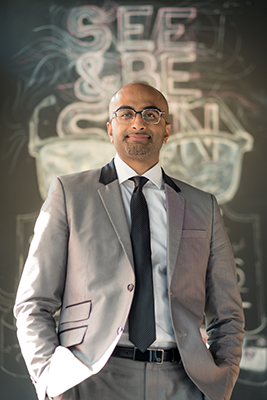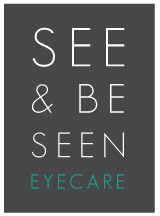If you wear glasses or contact lenses, chances are you may have wondered if LASIK surgery is a good choice for you. If you are a suitable candidate, laser eye surgery can offer a range of benefits including the freedom from glasses and contacts. See & Be Seen is pleased to provide both pre- and post-operative care for patients who undergo laser eye surgery, so you can rest assured you are in good hands.
What Is Laser Eye Surgery?
Laser eye surgery, also called refractive surgery, is a term used to describe surgical procedures that can be used to correct common vision problems such as nearsightedness, farsightedness, astigmatism, and presbyopia. This, in turn, can offer you freedom from glasses and contact lenses.
What Types Of Laser Eye Surgery Are There?
There are three main types of laser eye surgery: LASIK, LASEK, and PRK. There are a number of factors that will determine which surgery type is best for you, including the thickness of your cornea.
What Is The Difference Between LASIK, LASEK, And PRK?
LASIK
LASIK is one of the most popular forms of refractive surgery in the world and was specifically designed to minimize infection risks and reduce recovery time. During the procedure, your ophthalmologist will create a flap in the outer layers of your cornea, which they will then carefully fold back to reveal the middle layers.
Once the middle layers are revealed, a laser is then used to reshape them, correcting the refractive area of your eye. Your ophthalmologist will carefully replace the flap once the middle layers of your cornea have been appropriately reshaped.
LASIK patients usually experience clearer vision within twenty-four hours of their operation, and their vision should fully stabilize in about a week. Before you undergo surgery, See & Be Seen will book a post-operative appointment with you so that we can check your eyes and ensure they are healing properly.
PRK
PRK (photorefractive keratectomy) was the first type of refractive surgery developed for vision correction and is the predecessor to LASIK. Though PKR involves a slightly longer recovery time than LASIK, it is still commonly performed on patients whose corneas are too thin for LASIK surgery. PRK is often recommended for individuals who have previously undergone LASIK or are at an increased risk of infection due to flap complications.
The main difference between LASIK and PRK is the first step of the procedure. During LASIK, your ophthalmologist creates and folds back a small flap in your cornea. During PRK, the thin outer layer of your cornea is instead removed and discarded before your ophthalmologist reshapes the middle layers of your cornea.
PRK has a slightly longer recovery time than LASIK because the corneal cells need to completely regrow, a process that will take a few days. PRK patients can expect their vision to fully stabilize in a few weeks.
Should you decide that laser eye surgery is right for you, See & Be Seen will book a post-operative appointment with you so that we can check your eyes and ensure they are healing properly.
LASEK
LASEK is a variation of PRK and combines methods from both PRK and LASIK. Like other types of refractive surgery, LASEK works by reshaping your cornea with a laser, allowing light to focus properly on your retina and giving you clearer vision without the use of contact lenses or glasses.
During a LASEK procedure, your ophthalmologist creates a flap, like they would if they were performing a LASIK surgery. However, this flap is significantly thinner than the one created during LASIK surgery. Once the cornea has been reshaped the thin flap is replaced and then held in place using a bandage contact lens.
The Importance of Pre & Post-Operative Care
Laser eye surgery is not suitable for everyone, so it’s important to do your research, then discuss thoroughly with your eye care professional. In order to determine if your eyes are suitable, book a consultation appointment with your optometrist. During your consultation appointment, your optometrist will review your patient history and conduct a full assessment of your vision and eye health, including an eye exam. They will also be available to answer any questions you have about laser eye surgery.
If your initial evaluation determines that you are a suitable candidate, your optometrist will refer you to a laser surgery centre, which they will work with on an ongoing basis throughout your surgery and recovery time. The centre will perform a series of advanced diagnostic tests and assess your eligibility for surgery. If it is determined that you are a suitable candidate, your ophthalmologist will discuss the surgical options available to you. Once you have scheduled your surgery, your optometrist will book follow-up appointments with you. These appointments will typically start the day after surgery and will continue periodically over the next six months. One year after your surgery, it is recommended that you undergo a full eye exam so your optometrist can assess the long-term results of your procedure.





